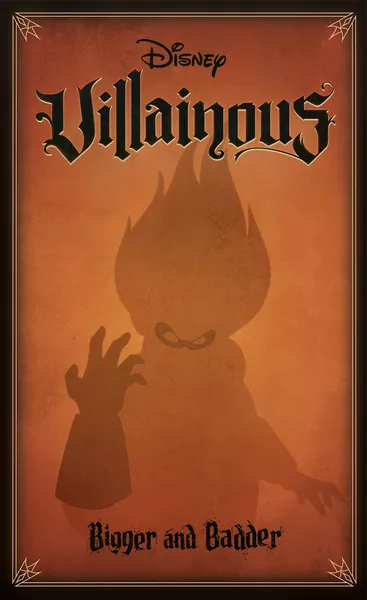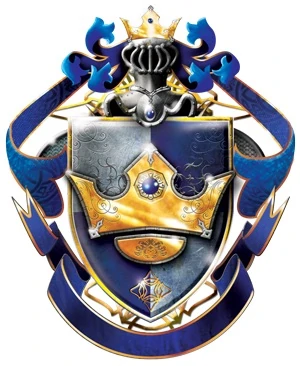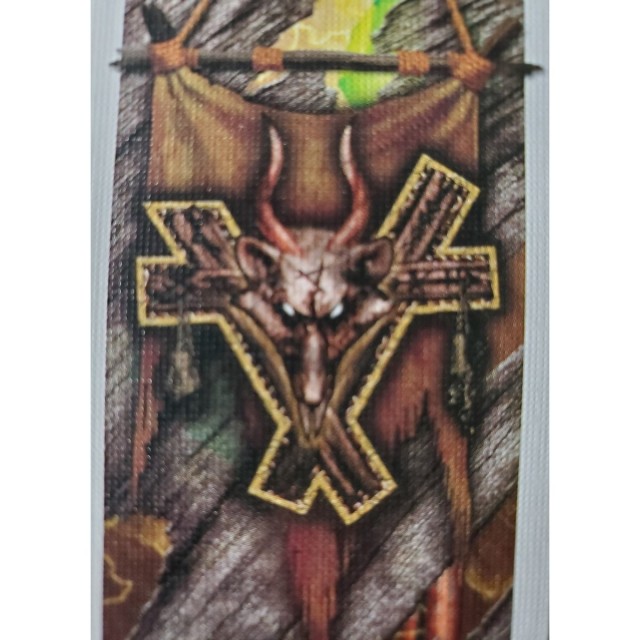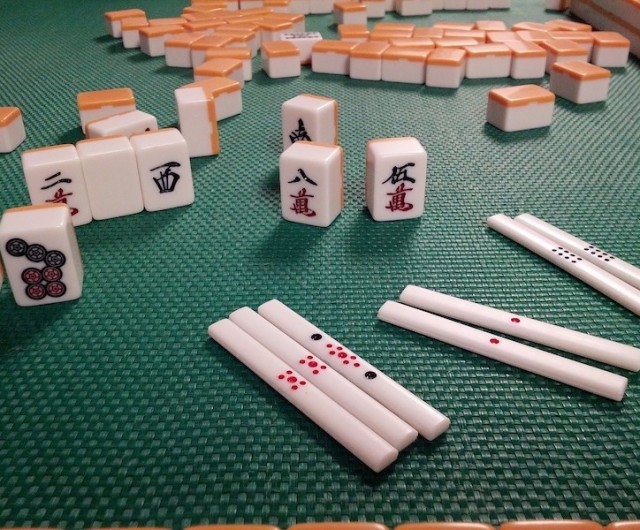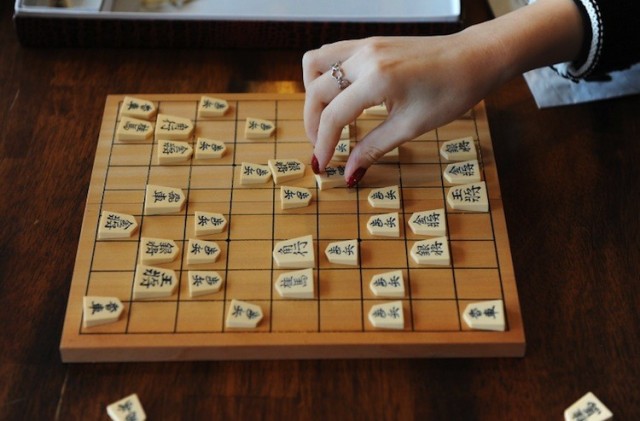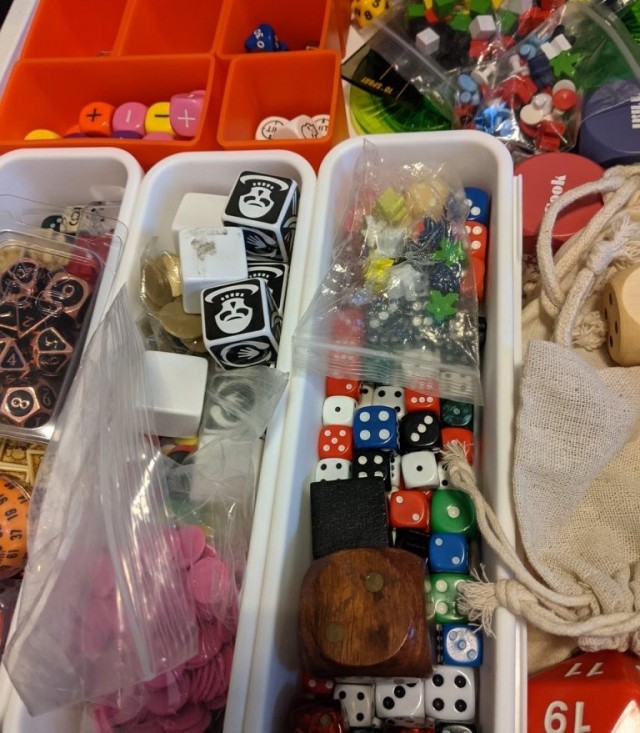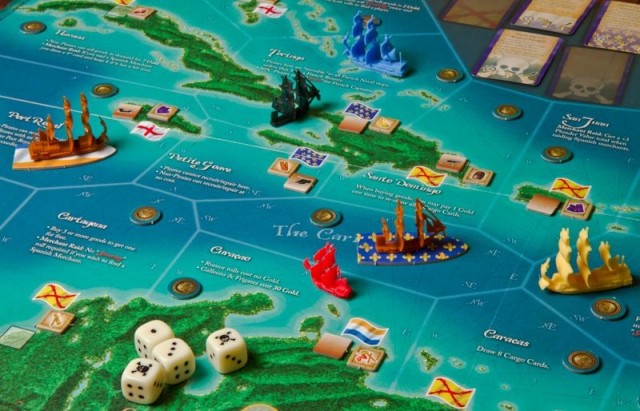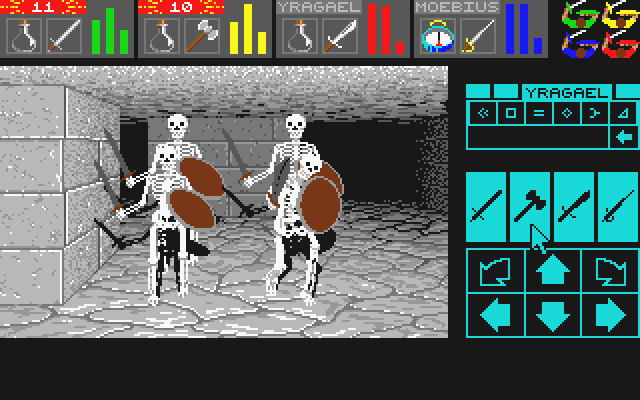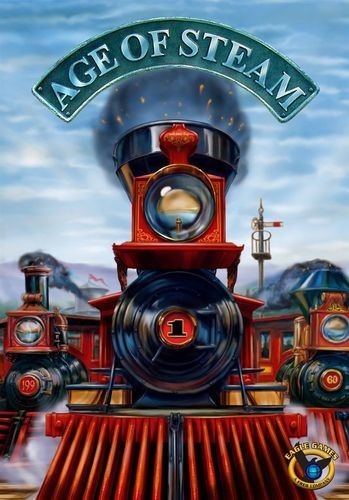Perhaps it’s just me, but I seem to be noticing of late a lot of people bemoaning the fact that modern game design - particularly in the great American tradition - is lacking in innovation. A little while ago Micheal Barnes caused something of a stir when he proclaimed design had hit a ceiling. More recently I’ve seen several different comments about upcoming ‘dudes on a map’ games bemoan that the genre is stale and uninteresting. For my own part I’ve devoted column inches on the lamentable state of fantasy adventure games. So what’s with all this negativity from the fan community? Have the games I love really hit the end of the road?
It seems to me as if there is a serious problem, certainly, with diversity. The games I like to play best often pride themselves on a good link between theme and mechanics and use it as a selling point. And yet when you stand back and look, the range of themes on offer is incredibly narrow. Fantasy games, usually with a heavy emphasis on combat and/or diplomacy. Science fiction games, usually with a heavy emphasis on combat and/or diplomacy. And that’s pretty much your lot: not a great basis for a rich and varied stream of design ideas.
It’s not all doom and gloom of course, otherwise I, for one, wouldn’t still be here playing these games. Design has, over the years, bought forth a stream of new and interesting game mechanics to explore, and finding ways to incorporate these into fantasy and sci-fi games has been the chief source of innovation in the genre. And of course a lot of moden American designs owe a big debt to Euros in this regard. So this isn’t going to be some misery-me piece - there’s certainly a lot of life left in this particular old dog at the moment. But whilst the future is secured, it remains a truism that there’s very little experimentation going on this these genres: a little more diversity would lead to us seeing a few more hot releases each year except for the 2-3 big names and a bunch of copycat wannabees that we’ve seen over the past couple of years. It leaves one wondering why there isn’t more experimentation around in terms of actual theme itself. After all, if one of the prime things we look for is a good thematic game, surely finding new themes to explore is the obvious answer?
Well we’ve only got ourselves to blame for that, really since such games do exist, but they’ve made a limited impact. Some multi-player wargames have got quite a following amongst Ameritrash gamers, it’s true, but some of the more thematically connected Euros get some press but don’t get very big followings. Take Martin Wallace, for example, who has pretty much made a career out of creating highly interactive and richly thematic Eurogames, and you’ll find opinion divided amongst Ameritrash gamers as to whether or not his games are near-genius hybrid designs or awful maths exercises that are no fun at all. And whilst few other designers have made such a career out of thematic Euros, most Euro designers have tried their hand at this sort of thing from time to time. There’s not a dearth of such games: aside from Mr. Wallace I could point to Amun-Re, Shogun, Thebes, Return of the Heroes and Mare Nostrum direct from memory and no doubt turn up plenty more if I chose to go looking. Yet the audience amongst die-hard Ameritrash fans is limited. The fact is that we play fantasy and science fiction games because we like fantasy and science fiction games. And herein lies the problem. Recently I went out looking for a flavoursome fantasy combat game and came back with very little for my troubles. Wiz-War, Mordheim perhaps and that’s about it. So I figured there might be some empty design space here and started to think about it. But the more I thought, the more it seemed to me that there’s very little to be done that doesn’t frankly look a lot like Wiz-War or Mordheim. It’s true that this no doubt points as much to a lack of imagination on my part as it does to some sort of design horizon, but you get the point. Designers have been working in this sphere for a long, long time and there’s not all that many stones left unturned.
This explains in part the otherwise curious fascination that Ameritrash gamers have with older titles, from that perceived golden age of early nineties. No other genre of game publishing has such a incredible track record of recycling old favourites, either repackaged with some new artwork as in Titan or with distinctly re-worked mechanics more suitable to modern taste, as in Fury of Dracula. In the past I’ve wondered if this phenomenon wasn’t partly based in a yearning for that bygone age when games of this sort were by far the most dominant force in board gaming, or by a refusal to see what leaps and bounds modern design has made in improving the experience and accessibility of game play. But from the point of view of this article it seems obvious that the reason is simply because many older games captured the science-fiction and fantasy flavours brilliantly well. And if theme is paramount, why bother go out looking for something newer that does the same old thing in a different way? Some gamers may complain that Tales of the Arabian Nights lacks strategy and is more of an “experience” game, but if you’re actually in it for the experience, how can you conceive of a game that captures the flavour of middle-eastern myth and legend more completely than the Z-man reprint?
Part of the problem is that one of the appealing things about fantasy and science fiction generally is the imagination involved in constructing and working through an other-wordly setting. But as I’ve bemoaned before, film makers and authors have a luxury in terms of time in explaining this sort of material to their audience. Gamers want to play games: it’s bad enough having to sit through a rules explanation usually, let alone have to spend another twenty minutes having the game owner explain the mythological background to the game in laborious detail just so you can have a more fulfilling play experience. And of course this is only half the story: a deep and detailed theme is not only more immersion but offers designers more of an angle on which they can work on specific mechanics that are innovative, strategically interesting and which really function to interlock the theme and the game play together. Generic fantasy and science fiction setups are all very well, but if we want to more fully explore a rich theme through implementing some interesting mechanics they’re just not going to cut the mustard.
The answer to this particular problem is obvious: if you can’t use the game material to map out a detailed background, borrow a background that the players are likely familiar with. In other words, design and produce a licensed game. I think it’s absolutely zero co-incidence that the most interesting and popular new (rather than re-printed) fantasy/sci-fi games of recent years have all been licensed properties: Battlestar Galactica, Middle-Earth Quest, Chaos in the Old World and others draw on TV, literature and role-playing games for source material that is widely familiar in gaming fandom. In doing so they offer up the chance to realise these themes in new and interesting ways, creating widely respected games. And there’s plenty of licences left unclaimed too: where are the games based on Thomas Covenant? Eternal Champion? Amber and many others? Licences cost money of course, but for the cash-strapped there’s plenty of “open-source” background to use from the worlds of myths and legends, and as I’ve suggested in the past this option alone has such a wealth of unexplored material that it’s almost criminal.
A very long time go - so long, in fact, that I can’t be bothered to dig out the reference - I suggested that Ameritrash games can be represented by three broad traditions of game. The first is the multi-player combat game which Ken Bradford affectionately labelled as the “dudes on a map” game for reasons that should be obvious. The second is the adventure and exploration game which strips down the RPG experience to its mechanical necessities and translates it to a board. A moments thought will demonstrate that most fantasy and science fiction games that we’re familiar with fill fit into one of those two categories. The third tradition is rather smaller and more obscure and is more heavily represented by faux-historical games than fantasy and sci-fi but it seems to me to belong very firmly under the same umbrella, and that’s political conflict games such as Junta, Bootleggers and others in which bluff and secrecy take the front seat and combat and maneuver - though present - tend to be pushed to the rear. There are a lot of proud games in this particular tradition and yet it seems very under-represented compared with the now familiar adventure and combat games. Surely there’s plenty of fertile ground here for developers looking for new angles on fantasy and sci-fi games to till?
Whilst I started this piece out on quite a negative note, I hope I’ve made it clear as we’ve progressed that I don’t see the future as being particularly negative at all. Rather this is a plea for more quality more often, and from a more inventive angle. In a similar manner as the bulk of otherwise readable fantasy authors trail in the wake of Tolkien’s success by simply trying to imitate what he did and failing, whilst the more memorable authors in the field strive to find a voice of their own, so it seems to me that many clearly very talented fantasy game designers remain in thrall to the board games of the early nineties when they could be doing something more interesting. The seeds are there: I recently came across the upcoming Catacombs (and I hope to have a review up soon) which bears all of the hallmarks of the traditional adventure game except that it features a dexterity based disc-flicking mechanic as its central premise. Hugely creative and, when considered carefully, also highly thematic, it shows there’s plenty of life left in the genre for those that look for it.
 Games
Games How to resolve AdBlock issue?
How to resolve AdBlock issue? 
